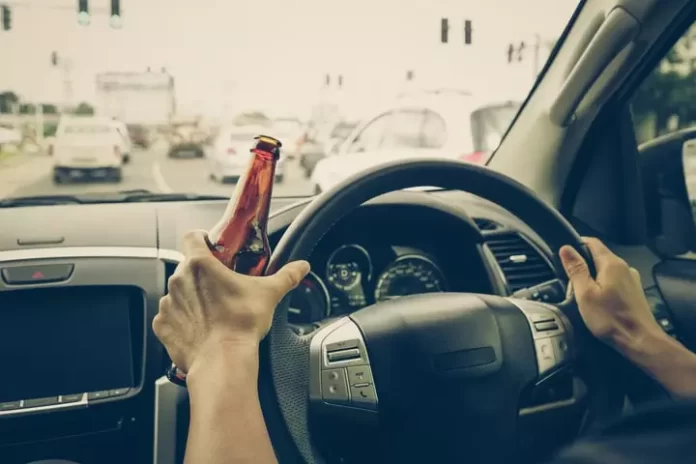Driving under the influence of alcohol is a criminal offense punishable by law. There is usually a limit that one shouldn’t exceed while driving. Blood Alcohol concentration (BAC) for all drivers of legal age should be 0.08%. However, some states don’t allow drivers of 21 years and below to drive under the influence of alcohol.
Different states have different drunk driving laws. For instance, in some places, police can arrest you if they suspect your driving is impaired.
How Does an Arresting Officer Determine Drunkenness?
The police officer will stop you if they suspect you are drunk driving. They use the following criteria:
- Ask you to perform a roadside test that checks your cognition, balance, and vision.
- Submit you to a blood test at a hospital
- Blow into a breathalyzer
If the officers find you drunk beyond the limit, they will arrest you. Upon arrest, the officer reads your rights, tows your car, and takes you to jail. You could undergo a hearing to set bail within a few hours. The penalties you face after arrest depend on whether you’re a first-time DUI or second, third, etc.
The difference between first and second-time DUI charges are as follows:
First-Time DUI Arrest Charges
First-time DUI arrests are not as severe as second-time DUI arrest charges. They are as follows:
- A jail term of not less than ten days
- Up to 5 years of probation
- License suspension
- Interlock device installation for a given period
- Mandatory community service
Second-Time DUI Arrest Charges
When you face a second DUI charge, the penalty is harsher. The court will treat you as a habitual offender and employ stricter measures. Each state has its rules; you can find your local charges on your website.
Penalties for a second-time DUI vary from one state to another. It also depends on whether you were charged with a felony or misdemeanor. The penalties for a second-time DUI are more severe than the first DUI charges. Some of the charges include the following:
- A longer jail term compared to the first DUI. Not less than 90 days in jail
- More significant fines of not less than $3,000
- License suspension for 12 months/ one year
- Mandatory installation of an ignition interlock device after you start driving again
- Enrollment in a traffic safety class
- Mandatory attendance of an alcohol treatment program
- You can permanently lose your job.
- Denied a chance to rent apartments.
- You can lose your voting rights.
- Lose your second amendment rights
Attorneys in a First or Second DUI Case
A DUI carries more than criminal repercussions. It can affect your daily routine, cost you a job, and disrupt your relationships. Because of this, you should consider legal options. First and second time DUI attorneys always come in handy to help with advice and guide on steps to take.
Look-Back Period
DUI look-back period is the length of time your past drunk driving conviction counts. It will help determine whether a new offense counts as a second offense. Look-back periods range between 5 to 10 years. Different states apply different rules to assess the look-back periods.
To Sum Up
You can determine specific second DUI penalties by checking the website of your local department of motor vehicles or speaking with an attorney. An attorney can help you understand how the penalties are determined and advise you on how to avoid them. The drunk driving lawyer can also help you know the consequences of the penalties and help you to find strategies to fight the charges. Ensure you get legal help when faced with a second DUI offense, which can quickly disintegrate your life.
Read also: 18 Wheeler Accidents: Common Causes and Prevention Tips



































































